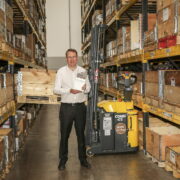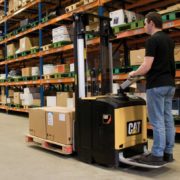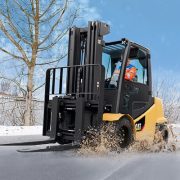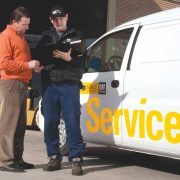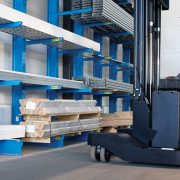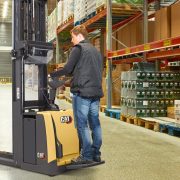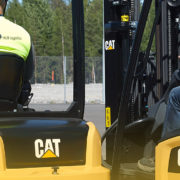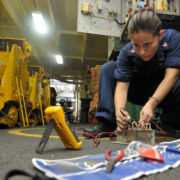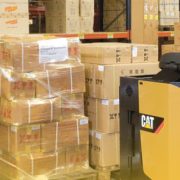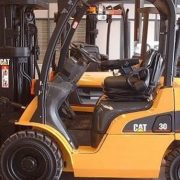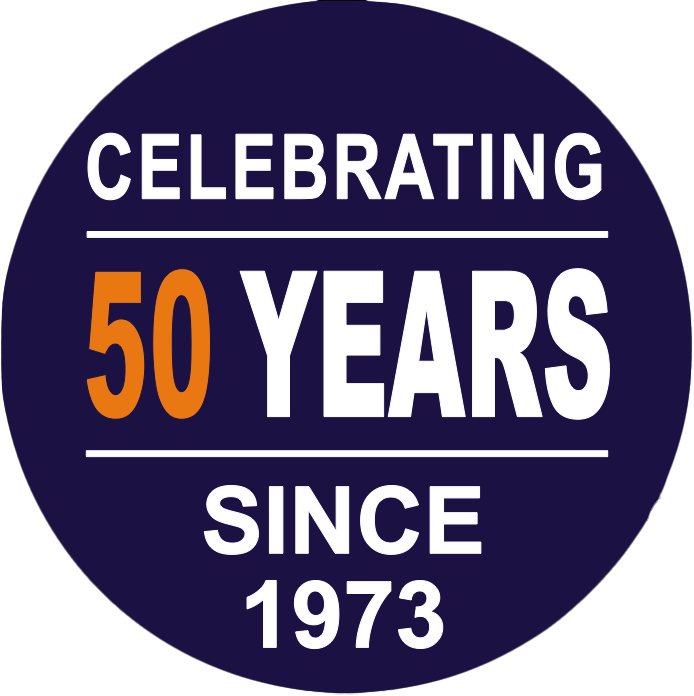Fork truck fleets are under increasing pressure as the peak summer months get underway. For forklifts in summer, lengthy heatwaves take their toll on lifting machines. It’s not particularly pleasant for operatives either. The current economic climate is hardly helping the situation right now so, before something gives, you need to get on top of both machine and operator welfare this sunny season.
Forklift operation can be adversely affected by rising temperatures and high levels of humidity. Add in increasing demands on warehousing as the Covid recovery continues, plus shortages in many industries ramping up the pressure, and it could just be that the perfect summer storm will see materials handling operations begin to creak.
That means some additional steps are needed to keep the motors running, the forks lifting and the goods moving.
Recognise the signs of forklift overheating
Overheating is a major problem for forklifts in the summer. Indoor-operating fork trucks can be subject to continuous high temperatures while those that work outside are exposed to long periods of sunlight beating down on them
A radiator in good working order and free from debris will help protect forklifts from overheating, while regularly checking coolant levels is essential. Inspect hoses for holes and leaks more frequently as high temperatures can make them more prone to cracking. Clogged filters also make overheating more likely, as do broken fan blades and loose fan belts.
Ensure operatives are fully briefed on recognising the signs that a forklift may be overheating. These include the temperature gauge moving into the red zone, steam coming from the engine compartment, backfiring or a loud growling noise during operation, and the cabin airflow becoming unusually warm. If any of those are noted, the fork truck should halt operations and maintenance personnel called.
Don’t let the battery die
Heat has several effects on a fork truck battery and they’re all negative. High temperatures lead to shorter battery life, so they’ll usually need replacing more often in summer than winter. Heat also causes battery fluids to evaporate so you’ll need to check the levels in the cells frequently.
If water levels are low in older lead-acid batteries, be sure to top up with water that is pH-neutral, distilled and deionised. You’ll likely need to increase the frequency of battery watering throughout the day in hot weather.
Check the tyres regularly
For forklifts in summer the heat can cause forklift tyres to crack. It can also lead to the rubber softening and this, combined with dusty conditions in dirty environments, can quickly result in the tyre sidewalls becoming more prone to damage and failure.
The air inside a fork truck tyre will also expand when it’s warm, causing higher pressure and a greater risk of a blow out. Conduct daily checks of tyre pressure – more when it’s particularly hot and inspect all surfaces for signs of cracking and excessive wear.
Pay attention to the lifting gear
As with all fluids, hydraulic fluid will evaporate more easily in hot conditions. Regularly check the levels to prevent the increased risk of forklift hydraulic systems seizing up and breaking down.
If the Great British weather reverts to type and we experience unpredictable conditions with large swings from cool days and nights to baking hot periods, the big shifts in temperature can play havoc with the sturdiness of cables, chains and connectors so have them examined regularly.
Overworked fork trucks in the long hot summer of ‘22
Aside from an impeccable preventative maintenance programme – which will keep you on top of everything above – a major cause of fork truck breakdown and overheating in the summer is simply overworking the machine itself. And spare a thought for its operator too.
In these times of soaring demand, supply chain issues and shortages in everything from commodities to construction materials, food products to labour, the demands on warehouses, fork trucks and staff are enormous. Plus, it’s a simple fact that working in summer can be exhausting for both humans and machines.
A revised inspection and servicing regime with increased frequencies, coupled with regular breaks and topped-up fluids for both truck and operator throughout the day are essential to avoid a complete meltdown.
Get in touch with our team today to find out how we can help you keep your fleet on the go!
